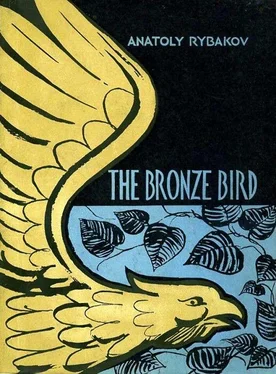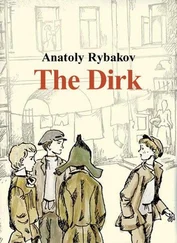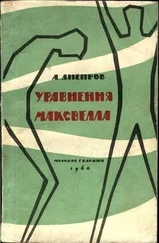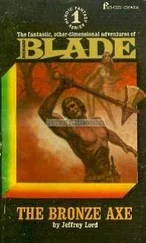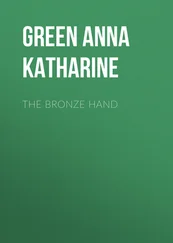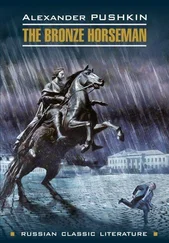Anatoly Rybakov - THE BRONZE BIRD
Здесь есть возможность читать онлайн «Anatoly Rybakov - THE BRONZE BIRD» весь текст электронной книги совершенно бесплатно (целиком полную версию без сокращений). В некоторых случаях можно слушать аудио, скачать через торрент в формате fb2 и присутствует краткое содержание. Город: Moscow, Год выпуска: 1956, Издательство: Foreign Languages Publishing House, Жанр: Детские приключения, Детектив, Исторические приключения, на английском языке. Описание произведения, (предисловие) а так же отзывы посетителей доступны на портале библиотеки ЛибКат.
- Название:THE BRONZE BIRD
- Автор:
- Издательство:Foreign Languages Publishing House
- Жанр:
- Год:1956
- Город:Moscow
- ISBN:нет данных
- Рейтинг книги:5 / 5. Голосов: 1
-
Избранное:Добавить в избранное
- Отзывы:
-
Ваша оценка:
- 100
- 1
- 2
- 3
- 4
- 5
THE BRONZE BIRD: краткое содержание, описание и аннотация
Предлагаем к чтению аннотацию, описание, краткое содержание или предисловие (зависит от того, что написал сам автор книги «THE BRONZE BIRD»). Если вы не нашли необходимую информацию о книге — напишите в комментариях, мы постараемся отыскать её.
THE BRONZE BIRD — читать онлайн бесплатно полную книгу (весь текст) целиком
Ниже представлен текст книги, разбитый по страницам. Система сохранения места последней прочитанной страницы, позволяет с удобством читать онлайн бесплатно книгу «THE BRONZE BIRD», без необходимости каждый раз заново искать на чём Вы остановились. Поставьте закладку, и сможете в любой момент перейти на страницу, на которой закончили чтение.
Интервал:
Закладка:
A wide panorama of the valley spread out before him: unbounded fields, dark woods, peaceful copses, solitary windmills, white belfries, and carts with their thills sticking skyward on the fields lying closest to him... The sun was rising slowly and its slanting rays were pushing the gloom into the distance and tinting the countryside with bright colours. But the dark, winding waters of the river were hidden from view by the hills and the overgrowth.
Misha returned to the boat. He and Longshanks relieved Genka and Slava at the oars. Genka took charge of the tiller and Slava settled down in the bow with the binoculars.
"Let's see if we can't make the boat go faster, Longshanks," Misha said, pulling his oars with all his strength. "You, Genka, be careful how you steer."
"Don't worry, this isn't my first time," Genka replied promptly.
He made a picturesque figure in his singlet and rolled-up trousers and with the tiller oar in his hands.
"Slava," Misha continued, "keep your eyes peeled. Watch out not only for the boatman. Our chief task is to find Igor and Seva. Watch for the raft or anything else that might put us on their trail."
"There's nothing to see so far," Slava replied, "neither the boatman, nor the boys, nor the raft, nor anything else."
For half an hour they rowed with might and main and Misha was about to get Genka and Slava to take over, when Slava, who was sweeping the river with the binoculars, suddenly said:
"Quiet, chaps! I think it's the boatman."
"Where?"
Misha and Longshanks feathered oars. Genka half-rose, staring intently ahead.
"I've lost him," Slava said, turning the binoculars. "I saw a boat just beyond that bend. Ah, there he is again."
"How far away?"
"About a kilometre," Slava said indecisively.
"We're nearing Khalzin Meadow," Longshanks said in a troubled tone.
"To the bank!" Misha ordered quietly.
When he and Longshanks climbed on to the bank and surveyed the river, they saw that the boatman was not rowing. His boat was rocking on the water and he was gazing at the bank.
"He's looking at Khalzin Meadow," Longshanks whispered, turning as pale as a sheet.
"What's eating you? There's nothing to be worried about."
The boatman, his eyes fixed on the bank, was steadying his boat with his oar from time to time. It looked as though he was afraid to draw near to the spot where Kuzmin was murdered.
The strain of waiting was more than Genka could bear and he joined his friends on the bank. Now the three of them, like the boatman, gazed at Khalzin Meadow.
Grown over with bright-green grass and flooded with sunlight, the meadow stretched between the left bank of the Utcha and the right bank of the tiny and nearly dry Khalzan, which drained into the Utcha.
There was so much peace and quiet in the green monotony of the meadow that the boys thought they heard the tiresome buzzing of gnats and the sharp chirping of the grasshoppers. The meadow was quite devoid of cover. The foliage of a few solitary trees hung low over the ground. Only on the riverside was there a fairly thick overgrowth of shrubs. From where had Kuzmin been shot? Why had Nikolai not heard the shot? Who had stolen his boat? Strange...
At last, the boatman dipped his oars and his boat moved on. The boys scrambled down the bank and started off in pursuit. Genka and Slava rowed, Misha sat in the bow and Longshanks in the stern.
They followed at a distance that allowed them to keep the boatman within range of their binoculars even when he went round one of the numerous bends. He rowed facing the boys and they had to be very careful to keep out of sight. Just before every bend, Misha leaped ashore and watched the boatman through his binoculars. In the excitement of the chase they forgot the purpose of their journey.
"We're approaching the most densely wooded places," Longshanks said. "I'll show you a path that leads to the Goligin Brushwood Road."
"You mean the road where the dead count is buried?"
"Yes."
"I never thought it was so far away."
"By river yes, but not if you go through the woods."
A long twist with a thick overgrowth again hid the boatman. Afraid to lose sight of their quarry, Misha told Genka and Slava to row faster. The boys plied their oars with a will. When their boat swung round the bend, Misha saw that he had been too hasty. About three hundred metres away from them the boatman, knee-deep in the water, was dragging his boat into a tiny cove near two white rocks. What saved the boys was that the boatman had his back to them and the water splashing about his feet prevented him from hearing the noise made by their oars.
The boys quickly drew alongside the bank and hid behind a tall tree whose branches came down to the very surface of the water. Unseen themselves, they could see the boatman.
"The path to the Goligin Brushwood Road starts from those two rocks," Longshanks whispered.
Misha signed to him to keep still.
The boatman pulled his boat out of the water, threw the chain round one of the rocks and turned into the woods.
The silence that followed was pierced by the treble scream of an owl.
Chapter 17
THE BOATMAN
It was a small and shallow cove. The thick foliage of a mighty oak sheltered it from the sun and that was why it had not dried up. From two white rocks a short path led to a nut-grove and disappeared into the woods beyond.
The boatman stood on the bank listening attentively. The boys also listened. From the depths of the woods an owl screamed in reply. Hiding behind a tree, the boys waited to see what would happen next. Bright flowers grew thickly on the edge of the woods. In the dazzling rays of the early morning sun, the tall buttercups, erect clusters of pale-yellow monkshood, white gillyflowers and gay forest bluebells merged in an iridescent carpet which looked so restful, joyous and inviting that suddenly Misha felt his suspicions were absurd. It seemed to him that if he were to go up to the boatman, the latter would talk to him amiably, with his usual mocking, unpleasant and noncommittal smile. But this feeling of tranquil trust died as quickly as it was born. The scream of an owl again came from the woods, much nearer this time.
The boatman went up and down a stretch of the bank to make sure that it was deserted, then turned to the woods and, with a gesture of his hand, beckoned over whoever was concealed behind the trees.
Two young men with sleepy faces and dressed in peasant's winter clothing emerged from the woods; one wore a torn sheepskin jacket and the other-a long, shabby homespun coat 5 both had crumpled army caps on their heads.
The men carried the sacks into the woods. The boatman said something to them but they made no reply. He again spoke to them when he was back in his boat, but the wind carried away his words.
As soon as the boatman got into his boat, Misha realized that he and his friends had to leave their shelter. The boys quickly rowed upstream for about half a kilometre, then they turned back to meet the boatman, pretending they were out for a row. Misha hid his binoculars under his seat.
The boatman came into sight the moment they turned their boat downstream. He rowed slowly, pulling his oars well back, and each time he bent forward his sharp shoulder-blades could be seen spreading and drawing together again under his shirt.
The splashing of the boys' oars made him stop rowing and turn his head. His boat rocked on the water, swinging round gently, and by the time the boys came abreast of it, it was already in midstream, blocking their way. To avoid hitting it with their oars, the boys also stopped rowing.
Cocking his head, the boatman looked distrustfully at the boys, then unexpectedly smiled and asked:
"Going far, comrades?"
Читать дальшеИнтервал:
Закладка:
Похожие книги на «THE BRONZE BIRD»
Представляем Вашему вниманию похожие книги на «THE BRONZE BIRD» списком для выбора. Мы отобрали схожую по названию и смыслу литературу в надежде предоставить читателям больше вариантов отыскать новые, интересные, ещё непрочитанные произведения.
Обсуждение, отзывы о книге «THE BRONZE BIRD» и просто собственные мнения читателей. Оставьте ваши комментарии, напишите, что Вы думаете о произведении, его смысле или главных героях. Укажите что конкретно понравилось, а что нет, и почему Вы так считаете.
